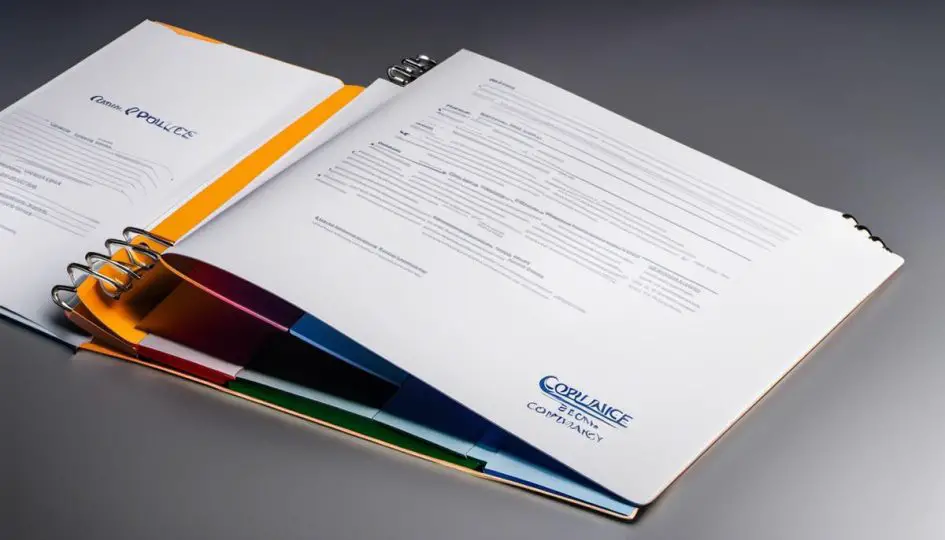In the professional world, understanding and properly navigating the policies for medical appointment excuses is a crucial skill. As an integral facet of work ethics and professionalism, attention should be given to the guidelines laid down by individual workplaces pertaining to time off for medical appointments, whether they include paid time off, sick leave, or unpaid leave. Moreover, it’s incumbent upon professionals to acquaint themselves with the ethical and legal considerations surrounding the use of medical appointment excuses to uphold integrity, honesty, and respect for workplace policies. The use of a doctor’s note as a valid medical excuse also requires a clear understanding of its requirements like dates, times, and a simplified documentation of the medical condition. Thus, crafting an appropriate, respectful, and professional medical appointment excuse involves integrating all these aspects diligently.
Understanding Company Policies
Understanding your Workplace Policies on Medical Appointments
Before planning your medical appointment during work hours, it is recommended to research and understand your company’s policy regarding medical leave or time off for medical appointments. This may vary widely from organization to organization, so never make assumptions based on previous workplaces or hearsay from colleagues.
Company policies on medical leave may be found in your employee handbook, contract of employment, or on the company’s internal website. You can also contact your human resources department directly for this information. Make sure to understand whether your medical leave would be paid, unpaid, or deducted from your sick leave.
Types of Leave for Medical Appointments
Typically, the types of leave that could be used for medical appointments include paid time off (PTO), sick leave, or unpaid leave. PTO is often a pool of hours from which workers can draw for a variety of reasons, including vacation, personal time, and illness. Sick leave, on the other hand, is specifically intended for health-related absences.
Unpaid leave may be an option if you’ve exhausted your paid leave or if your company doesn’t provide paid leave for medical appointments. Be aware, though, that frequent or prolonged unpaid leave may raise concerns among your employers.
Required Documents for Medical Appointments
After understanding your company’s policies and the type of leave you are entitled to, it’s also crucial to understand what documentation is required. Many companies need some sort of verification or an excuse from a medical health professional. This typically takes the form of a note from your doctor specifying the need for the appointment and its anticipated duration.
Ensure to ask the medical office or your doctor for documentation while at your appointment, as it will be more difficult to obtain this after the appointment concluded. Remember that the note should ideally be on official letterhead for authentication purposes.
Communicating with your Employers
Once you are aware of your workplace’s policies and have organized your medical appointment and required documentation, make sure to keep open communication with your employer. Inform your supervisor or manager about your required absence ahead of time to facilitate better scheduling within your workplace.
Ultimately, understanding your company’s policies towards medical appointments is key in ensuring that you follow the correct procedures. This demonstrates professionalism and respect towards your employer and colleagues while also securing the needed time off for your healthcare needs.

Legal and Ethical Concerns
Legal and Ethical Parameters Regarding Medical Appointment Excuses
Not all employment situations necessitate a formalized excuse when an individual needs to miss work due to a medical appointment. This varies significantly based on the nature of work, company policies, and the duration of absence. Yet, it’s imperative to understand legal and ethical boundaries to avoid overstepping any lines.
The Family and Medical Leave Act (FMLA) and the Americans with Disabilities Act (ADA) legally protect workers needing time off for health-related reasons in certain circumstances. Still, these protections only apply to eligible employees in companies of certain sizes. It is critical to vet your organization’s position in relation to these federal laws.
Abuse of Policy: The Consequences of False Excuses
One crucial ethical concern to consider is the truthfulness of a medical appointment excuse. While possibly tempting in situations where an employee wants a day off without using their allotted leave, providing a fake medical excuse is dishonest and can lead to serious consequences, from job loss to legal penalties.
If discovered, the false excuse can also impact the employee’s professional reputation, leading to long-term career implications. In some cases, it may even be considered fraud, especially if it involves forging documents or falsifying signatures.
The Ethical Use of Medical Appointment Excuses
Using a medical appointment as an excuse for absence should be reserved for authentic scenarios when an employee has a valid appointment that can’t be scheduled outside of working hours. Honesty is the best policy in these situations.
If an employee is sick or needs a mental health day, it’s better to communicate this truthfully to their employer rather than misrepresenting the reason for the absence. Most companies have sick leave policies in place. Using them candidly can foster an environment of trust and respect.
Necessary Documentation for Medical Excuses
Depending on the company’s requirements and extent of absence, proof of appointment might be necessary. This generally comes in the form of a doctor’s note which verifies the date and time of the appointment. If an employee is required to provide such documentation, it’s paramount to acquire it in an honest and ethical manner, following all privacy laws.
HIPAA, the medical privacy law, prohibits medical professionals from disclosing information about a patient’s health or medical conditions without explicit consent. Understand that only minimum necessary data should be shared. Therefore, workers have the right to request a simple note confirming the appointment without disclosing sensitive health information. Usually, this is sufficient as per most organizations’ policies.
In conclusion, appropriateness in utilizing a medical appointment excuse hinges on factual circumstances, staying within the company’s framework and the ethical code of honesty.

Doctor’s Note Requirements
Understanding Doctor’s Note Requirements
A doctor’s note, often referred to as a medical certificate or sick note, is an official document provided by a healthcare provider to verify the need for an individual’s absence from work or school due to medical reasons. In many cases, it helps to protect employee rights as part of sick leave policies or accommodation requirements.
Basic Components of a Doctor’s Note
Every Doctor’s note should contain several critical elements to be considered valid. Firstly, a formal doctor’s note is printed on the letterhead of the doctor or healthcare provider, lending authenticity to the document. It should clearly state the doctor’s name, address, phone number, and type of medical practice.
Secondly, the note must bear the date on which the medical examination took place. It should reflect the date when the doctor assessed the patient – not just the date the note was written or printed.
Thirdly, the note will typically contain the patient’s name, who is receiving the excuse. Not having the patient’s name would make the document unusable as a proof of visit.
Medical Information and Privacy
While a doctor’s note will provide a general explanation for the patient’s visit, it’s vital to remember that the note should only include the necessary information pertaining to the medical excuse. Due to privacy rules, specifically the Health Insurance Portability and Accountability Act (HIPAA) in the United States, a doctor’s note rarely goes into the specifics of a patient’s condition unless the patient grants permission.
Instead, a broadly defined statement such as “medical illness” or “medical appointment” should suffice. The duration or estimated period of the patient’s absence from work or school is also to be included.
Doctor’s Signature as Final Requirement
Finally, the note should be signed by the doctor or healthcare provider who examined the patient. This signature, combined with the doctor’s contact details on the letterhead, acts as validation of the note’s truthfulness. If a doctor’s note lacks a signature, it may be considered void.
Remember, following these guidelines for a doctor’s note not only ensures its acceptance as a valid excuse but also respects the necessary privacy laws regarding patient information.

Scripting Your Excuse
Prepare your reasoning
You should begin by determining your reason for missing the appointment. This could be a conflicting work commitment, a family urgency, or an unexpected personal matter. One must ensure that the reason selected could realistically hinder you from making the appointment and that it is true. Fabricating reasons or providing false information can lead to negative consequences, both ethically and professionally.
Scripting the excuse
Here is a way you could effectively script your message: “Due to an unforeseen situation concerning (reason), I am unable to attend my scheduled appointment on (date) at (time). I understand the importance and commitment required for these appointments, however, the circumstances are beyond my control and demand my immediate attention.”
Provide alternative solutions if possible
Your message should, where possible, contain proposed alternative dates and times for the appointment, showing your initiative and understanding that medical appointments are important and to assist with rescheduling. For instance: “If convenient, I would like to reschedule the appointment to the earliest available slot suitable for both our schedules.”
Avoid extensive medical details
Design your excuse to avoid going into unnecessary medical details. It’s essential to respect your own privacy and abide by professional boundaries. Thus, your excuse should not disclose more about your health condition than what is necessary.
Emphasize Respect and Apology
Express your understanding, respect, and apologies for the inconvenience caused. Close out your message with something along the line of: “I apologize for the inconvenience caused and appreciate your patience and understanding in this regard.”
By following these steps, you can professionally and correctly convey your message without revealing excessive personal information.

In mastering the art, so to say, of formulating a compliant and ethical medical appointment excuse, one not only contributes to maintaining an honest professional environment but also fosters trust and respect within the workplace. This understanding and approach ensures the careful balance between personal health requirements and professional commitments is upheld. Essentially, the process involves a solid grasp of company policies about time off for medical appointments, understanding and adhering to ethical and legal provisions, being clear about what constitutes a valid doctor’s note, and finally scripting a detailed yet respectful excuse. Achieving expertise in this area is not only a sign of professional maturity and honesty but also a testament to one’s commitment to workplace ethics and responsibilities.


Recent Comments